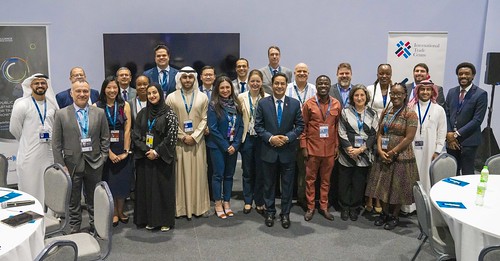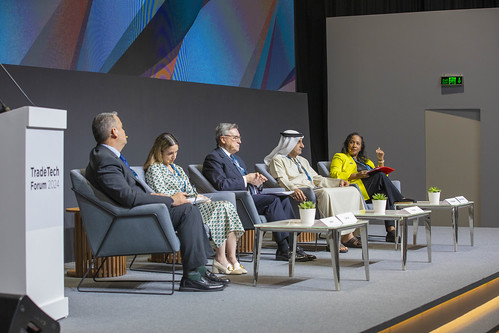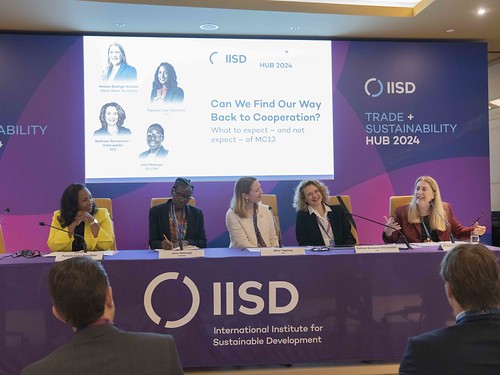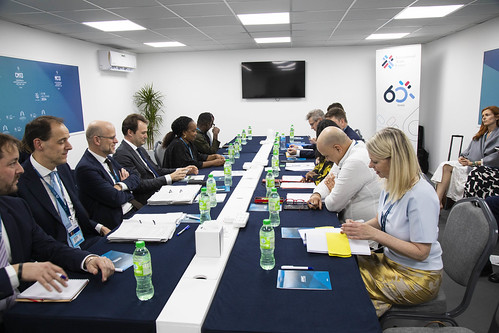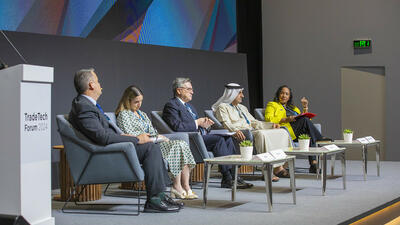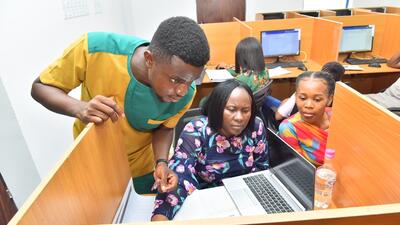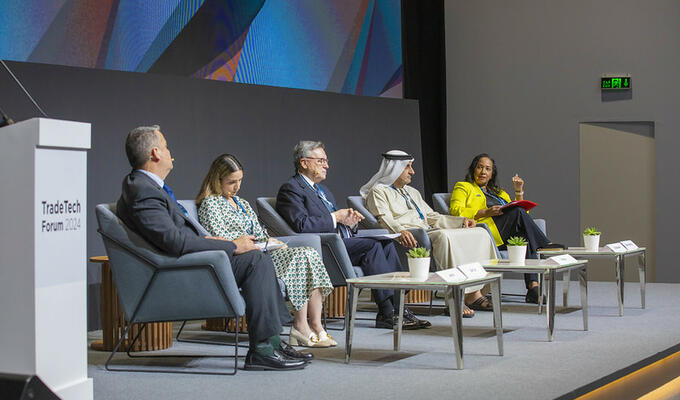
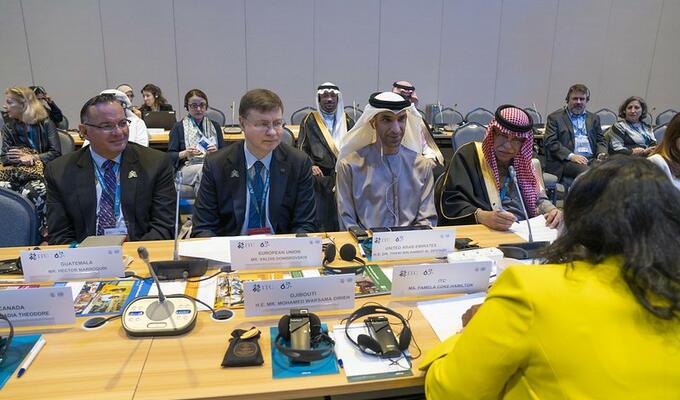
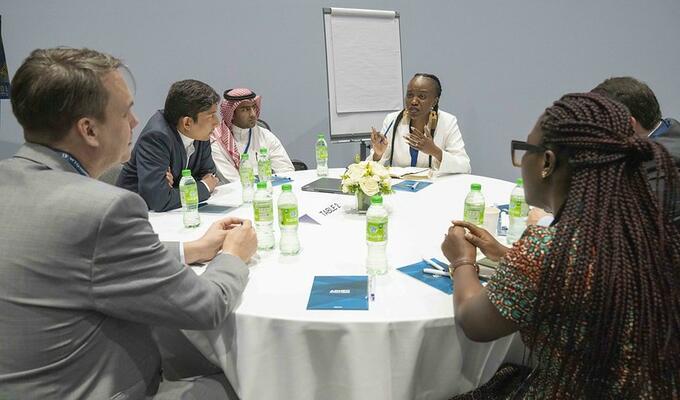
Women’s economic empowerment, green trade set the scene for WTO conference
The world’s trade ministers discussed some of the thorniest issues in global commerce at the highest-level gathering for the World Trade Organization (WTO).
For the International Trade Centre (ITC), the focus was on strategies to build a more inclusive and sustainable trading system, one where women, youth, and vulnerable communities drive the future of trade. A new fund for women is another step in that direction.
One of the most notable developments from the WTO’s Thirteenth Ministerial Conference (MC13) came in the form of the Abu Dhabi Ministerial Declaration, which took special note of the importance of women participating in trade. That same text, adopted by ministers at the conference’s closing ceremony, also highlighted how supporting small businesses can drive economic growth and reduce poverty.
A separate Ministerial Decision also set out flexibilities to support WTO members who are graduating from least developed country status, with the goal of easing that transition. Other MC13 decisions include, among others, the next steps for the WTO’s 1998 e-commerce work programme.
The issues raised at Abu Dhabi underscore the urgency of ITC’s work in helping small businesses engage in trade, especially those led by women, in today’s tenuous economic landscape.
Small businesses, including those led by women, need support to navigate an increasingly digital economy. That’s why the WTO and ITC launched a new fund on the eve of MC13. The Women Exporters in the Digital Economy (WEIDE) Fund aims to support women-led businesses as they adopt new digital technologies and tools, and in turn access new markets and compete internationally.
The International Finance Corporation estimates that women-led businesses face a credit gap of $1.4-1.7 trillion.
‘This new WTO-ITC fund is the next stage in our commitment to close the gap that women-led businesses face, for good,’ said ITC Executive Director Pamela Coke-Hamilton. ‘To help ensure that women are not cut off from the digital economy but can instead shape it for the better.’
The United Arab Emirates, the ministerial conference host, became the first donor to the fund with a $5 million commitment.
The announcement of the new fund came during the WTO-ITC High-level Event on Women and Trade, which included the SheTrades Summit. As a flagship initiative of ITC, SheTrades runs hubs around the world that act as resource centres to support women’s businesses. At the summit, women entrepreneurs could network and share their experiences with global business leaders and policymakers.
SheTrades also provides policy advice, analysis and other resources to support women-led businesses. During the conference, the Informal Working Group on MSMEs and the Informal Working Group on Trade and Gender launched a compendium on financial inclusion initiatives for women-led businesses, which was prepared by the WTO secretariat and ITC.
The compendium serves as a policy tool for the development of financial inclusion schemes for women entrepreneurs.
Towards greater cooperation in trade: from the green transition to investment facilitation
ITC also played an active role at the International Institute for Sustainable Development’s (IISD) Trade + Sustainability Hub, which took place in parallel to MC13.
ITC’s Executive Director Pamela Coke-Hamilton helped set the stage in the opening plenary. She shared her reflections on why events like MC13 are critical for moving towards the systemic change that the world’s small businesses need—and why this work must continue long after the ministerial conferences.
Also at the IISD event, ITC co-hosted a session centred on how to ensure trade-related environmental measures achieve their objectives, while not preventing small businesses from connecting to markets and global supply chains. Meanwhile, a separate session co-organized by ITC during the IISD Hub examined what the Investment Facilitation for Development Agreement could look like in practice, once enacted.
On the sidelines of the conference, the Executive Director also spoke at the World Economic Forum TradeTech Forum. This event looked at technologies that can make global trade more efficient. That technology if often out of reach for small businesses. ITC’s Digital Moonshot is working to get more small businesses connected through policy change, institutional support, and better resources for the entrepreneurs themselves.
During a roundtable organized by the Netherlands and ITC on the role of agri-tech in contributing to sustainability and food security, tech companies Hamwe (Uganda) and Npontu (Ghana) shared tried-and-true applications that have benefited thousands of farmers and consumers. Dutch Minister for Foreign Trade and Development Cooperation, Geoffrey van Leeuwen, and ITC Executive Director agreed that enhanced partnership is required to scale up tech solutions in agriculture to more countries.
ITC also signed a letter of intent with Microsoft Corporation to develop and roll out training for small businesses to strengthen their digital skills, on topics ranging from artificial intelligence for trade to cybersecurity and e-commerce.
Welcoming new members to the WTO
WTO members also formally adopted the accession packages of two of the world’s least developed countries, Comoros and Timor-Leste. Once their processes are finalized domestically, 37 of the world’s 45 least developed countries will be members of the global trade body. ITC supports incoming members on their accession and in navigating their membership.




